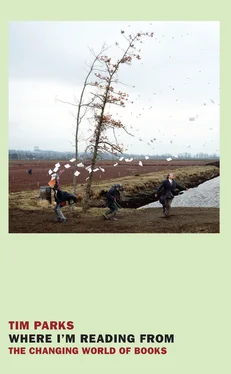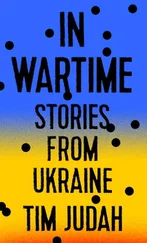The comedy of the poem is its reproduction of a range of acoustic and rhythmic strategies that the reader immediately recognizes as typical of a certain kind of poetry, but with nonsense words. The suggestion is that all such poetry is driven to a degree by the inertia of style and convention, that the sound is as decisive as the sense in determining what gets said; indeed, when we “run out of sense,” the sound trundles on of its own accord. But how could one begin to translate “mome raths outgrabe”? We have no idea what it means. The only strategy would be to find an equally hackneyed poetic form in the translator’s language and play with it in a similar way.
Liberated by the fact that many of the words don’t have any precise meaning, the translator should not find this impossible, though whether strictly speaking it is now a translation is another issue. Here is a heroic Italian version by Milli Graffi:
Era cerfuoso e i viviscidi tuoppi ,
Ghiarivan foracchiando nel pedano
Stavano tutti mifri i vilosnuoppi ,
Mentre squoltian i momi radi invano.
In general, however, what we find is a reproduction of the sense, but with a much diluted intensity of the Jabberwock effect. Developing Frost’s notion that “poetry is what gets lost in translation,” we might say that what we won’t find in translation is this lively, often undiscriminating pattern of sounds, an ancient enchantment, which the best writers can integrate with their creativity and the worst simply allow to take over the show, as in the marvelously poor poetry of William McGonagall:
Beautiful Railway Bridge of the Silv’ry Tay!
Alas! I am very sorry to say
That ninety lives have been taken away
On the last Sabbath day of 1879,
Which will be remember’d for a very long time.
Translated texts, then, and there are ever more of them in the world today, tend to be cooler, a little less fluid—they will operate more on the rational intellect than on the rhythm-wired senses. They will deceive you less and charm you less. Of course there are notable exceptions, texts that were translated with the seduction of the reader and the beauty of the language very much in mind. Where these are old and central to our culture—the Bible, most obviously—they can become canonical on a par with our homegrown writing. But there are remarkably few of them.
I have often wondered if that is why, in certain countries, translations now even seem to be preferred to works written in the native language. A large study carried out at my university on four corpuses of texts—Italian novels before 1960, English novels translated into Italian before 1960, Italian novels after 1990, and English novels translated into Italian after 1990—suggests that while the national language in Italy is changing fast, with Italian novelists ever more open to stylistic influence from the cinema or from abroad, translations into Italian keep alive a hypercorrect literary Italian that has otherwise lapsed into disuse. Even the most disturbing texts can, at least linguistically, deprived of the Jabberwock effect, prove calm and reassuring.
I’M STARTING A translation, my first for many years, and at once I’m faced with the fatal, all-determining decision: What voice do I translate this in?
Usually one would say: the same voice as the original’s, as you hear it in the Italian and imagine it in English. This would be along the line of Dryden’s famous injunction to translators to write as the author would write if he were English—a rather comical idea since we are interested in the author largely because he comes from elsewhere and does not write like an Englishman. In any event, this text is a special case.
I’m translating a selection of entries from Giacomo Leopardi’s Zibaldone . This is a book all Italians know from school though almost nobody has read it in its entirety. The word zibaldone comes from the same root as zabaione and originally had the disparaging sense of a hotchpotch of food, or any mixture of heterogeneous elements, then a random collection of notes, a sort of diary, but of disconnected thoughts and reflections rather than accounts of events. Leopardi, born in 1798 and chiefly remembered for his lyric poetry, kept his Zibaldone from 1817 to 1832, putting together a total of 4,526 handwritten pages. Printed editions come in at something over two thousand pages, before the editor’s notes, which are usually many. There is general agreement that the Zibaldone is one of the richest mines of reflection on the modern human condition ever written. Schopenhauer in particular referred to Leopardi as “my spiritual brother” and saw much of his own thinking foreshadowed in Leopardi’s writings, though he had never seen the Zibaldone , which at the time was still unpublished. The selection I’m translating, put together by an Italian publisher, is made up of all the entries that Leopardi himself had flagged as having to do with feelings and emotions.
Immediately two problems arise as far as establishing a voice for translation. First, the book is almost two hundred years old; second, even if Leopardi might have imagined its being published, it was certainly not written or prepared for publication and is full of elisions, abbreviations, notes to himself, rewrites, and cross-references. In fact, on his death in 1837 the huge wad of pages was dumped in a trunk by his friend Antonio Ranieri and was not published in its entirety until 1900. So, do I write in modern prose, or in an early-nineteenth-century pastiche? Do I tidy up the very personal and unedited aspect of the text, or do I preserve those qualities, if I can?
The first question would be more tormented if I felt I had any ability to write an approximation of early-nineteenth-century English. I don’t. So that’s that. But I’m also suspicious of the very idea of such time parallels. English and Italian were in very different phases of development in the 1830s. Official English usage had largely been standardized in the previous century, and novelists like Dickens were preparing to launch a full-scale assault on that standardization. Not to mention the fact that American English already had a very different feel than British English. Meantime, Italian hardly existed as a national language. Only around 5 percent of Italians were actually speaking and reading Italian when the country achieved political unification in 1861. The literary language, dating back to Petrarch, Dante, and Boccaccio, was Tuscan, and this is the language Leopardi writes in, but without ever having been to Tuscany, at least when he began the Zibaldone . For him, it’s a very mental, cerebral language, learned above all from books. Does it make any sense to move from this to the language of Shelley and Byron, or Emerson and Hawthorne?
Even given these circumstances, Leopardi was special to the point of idiosyncrasy. Brought up in a provincial town in the Papal State of central Italy, then one of the most backward territories in Europe, son of an eccentric aristocrat fallen upon hard times, Leopardi was a prodigy who seems to have spent his whole childhood in his father’s remarkable library. By age ten he had mastered Latin, Greek, German, and French. Hebrew and English would soon follow. The Zibaldone is peppered with quotations from these languages, and they can be heard, particularly the Latin, here and there in his prose. Thinking aloud, as he seeks to turn intuition and reflection into both a history of the human psyche and a coherent but very private philosophy of nihilism (with his own shorthand terms, which sometimes don’t quite mean what standard usage would suppose them to mean), he latches on to any syntax that comes his way to keep the argument moving forward. Some sentences are monstrously long and bizarrely assembled, shifting from formal structures to the most flexible use of apposition, juxtaposition, inference, and implication. The one other translation of an “old” text I have done, Machiavelli’s The Prince , was a picnic by comparison.
Читать дальше












